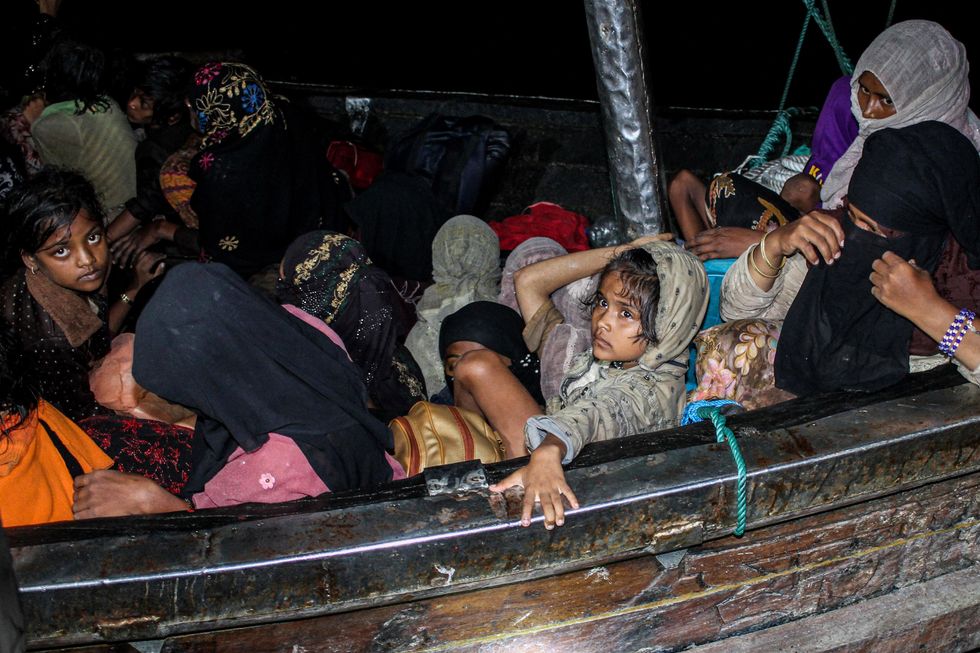
A United Nations refugee advocate on Friday joined human rights defenders in imploring South and Southeast Asian nations to rescue nearly 200 Rohingya refugees “on the verge of perishing” after drifting on the Andaman Sea for weeks—an ordeal that’s already reportedly claimed around 20 lives aboard the vessel.
The refugees—who are fleeing ethnic cleansing and other severe state repression in their native Myanmar—have been packed aboard the unseaworthy boat for as long as a month without adequate food or water, the office of the United Nations High Commissioner for Refugees (UNHCR) said in a statement.
“While many in the world are preparing to enjoy a holiday season and ring in a new year, boats bearing desperate Rohingya men, women, and young children, are setting off on perilous journeys in unseaworthy vessels.”
“It is devastating to learn that many people have already lost their lives, including children,” Indrika Ratwatte, UNHCR’s Asia and Pacific director, said on Friday, lamenting that the refugees’ plight has been “continuously ignored” by countries in the region.
“This shocking ordeal and tragedy must not continue,” Ratwatte continued. “These are human beings—men, women, and children. We need to see the states in the region help save lives and not let people die.”
Using his phone, the captain of the stranded boat told Mohammed Rezuwan Khan, whose sister and 5-year-old niece are on the vessel, that “we’re dying here.”
Khan toldThe Washington Post on Friday that he has lost contact with his relatives aboard the vessel and that he is “very concerned” for their well-being.
“I ask the international community to not let them die,” Khan added. “Rohingya are human beings. Our lives matter.”
According to UNHCR:
Since the first reports of the boat being sighted in Thai waters, UNHCR has received unverified information of the vessel being spotted near Indonesia and then subsequently off the coast of the Andaman and Nicobar Islands of India.
Its current location is reportedly once more back eastwards, in the Andaman sea north of Aceh.
UNHCR has repeatedly asked all countries in the region to make saving lives a priority and requested the Indian marine rescue center earlier this week to allow for disembarkations.
While the Sri Lankan navy and local fishers acted rapidly to rescue over 100 Rohingya from a boat in distress in the Indian Ocean last weekend, no such assistance has been rendered to the vessel drifting in the Andaman Sea.
“International humanitarian law requires the rescue of people at sea when they are in distress, and their delivery to a place of safety,” Amnesty International stressed in a tweet Thursday. “Further delays to alleviate this suffering or any attempts to send Rohingya back to Myanmar where they face apartheid are unconscionable.”
Two weeks ago, a Vietnamese commercial ship en route to Myanmar rescued 154 Rohingya refugees from a sinking boat before turning them over to Burmese authorities, who reportedly arrested the migrants.
On Thursday, United Nations Special Rapporteur on Myanmar Tom Andrews said that nations in the region “should prevent any loss of life and urgently rescue and provide immediate relocation” to the stranded Rohingya.
“Too many Rohingya lives have already been lost in maritime crossings.”
“Too many Rohingya lives have already been lost in maritime crossings,” asserted Andrews, a former Democratic U.S. congressman from Maine. “Increasing numbers of Rohingya have been using dangerous sea and land routes in recent weeks, which highlights the sense of desperation and hopelessness experienced by Rohingya in Myanmar and in the region.”
UNHCR has reported a 600% increase of mostly Rohingya people endeavoring perilous sea journeys from Myanmar and Bangladesh in 2022. The agency says at least 119 people have died or gone missing this year.
“While many in the world are preparing to enjoy a holiday season and ring in a new year, boats bearing desperate Rohingya men, women, and young children, are setting off on perilous journeys in unseaworthy vessels,” Andrews said.
“The international community must step forward,” he added, “and assist regional actors to provide durable solutions for the Rohingya.”




